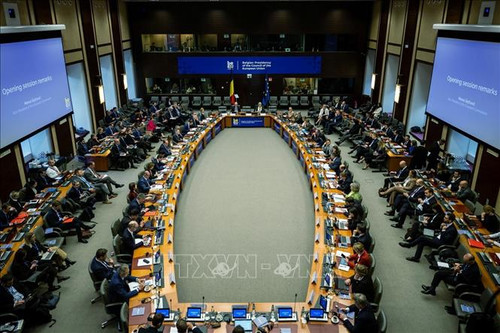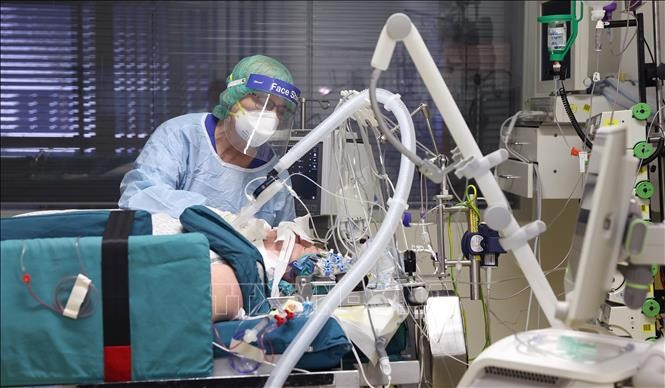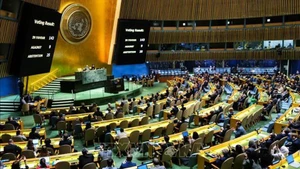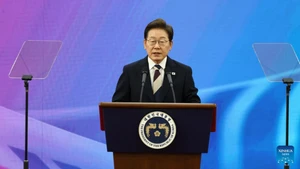The COVID-19 pandemic has caused unprecedented pressure and exposed vulnerabilities in the health sector across EU member countries.
Health systems in the EU are facing difficulties in human resources, such as shortages and uneven distribution, or the skills of health workers mismatching the increasing demand for health care and the advancement of technology.
Efforts to address these challenges require coordinated action at the national, European, and international levels.
In fact, member countries are implementing their own strategies, but the EU still plays an important role in supporting and complementing these initiatives through financial funding and legal frameworks.
 |
| Roundtable at the Informal Meeting of EU Health Ministers in Brussels, BelgiumInformal Meeting of EU Health Ministers in Brussels, Belgium (Photo: VNA) |
At the recent meeting in Brussels, with the proposal of Belgium, which currently assumes the rotating Presidency of the EU Council, EU health ministers discussed the idea of a comprehensive EU health workforce strategy focusing on planning, training, and regulatory improvements to meet the evolving needs of health systems.
One of the other important contents of the meeting was the discussion of non-communicable diseases, such as diabetes, cardiovascular disease, and cancer, which are considered the reason for a large number of deaths in Europe.
Many initiatives have been launched by the EU to strengthen prevention of these diseases. Since its launch in February 2021, the Europe’s Beating Cancer Plan (EBCP) has presented several legislative initiatives to address these risk factors, including measures to reduce tobacco and alcohol consumption and improve healthy diets.
However, the policies of each member state differ significantly regarding food and tobacco consumption, hindering the bloc's collective efforts.
Therefore, active participation and cooperation from member states is essential to ensure the EU’s pivotal role in tackling the risk factors of non-communicable diseases.
Medicine shortage has been a concern of EU officials in recent years. Short-term measures focus on alleviating critical shortages, while medium and long-term strategies aim to strengthen supply chains and enhance forecasting mechanisms.
During their informal meeting, health ministers were invited to discuss further steps to address the issue at EU level, including cooperation throughout the alliance on stockpiling, pricing, and public procurement.
The Critical Medicines Alliance was launched to ensure that citizens of the bloc always have access to the medicines they need.
Stella Kyriakides, European Commissioner for Health and Food Safety
On the sidelines of the informal meeting, the Health Emergency Preparedness and Response Authority (HERA) of the European Commission (EC) in coordination with Belgium officially launched the Critical Medicines Alliance (CMA).
According to Stella Kyriakides, European Commissioner for Health and Food Safety, CMA was launched to ensure that citizens of the bloc always have access to the medicines they need.
The EC will focus on addressing vulnerabilities in the supply chain and recommend priorities areas of action, like strengthening manufacturing capacities and diversifying international supply chains, she stated.
With about 250 members have been registered to participate, the alliance is expected to receive resources and expertise from governments, industry, health professionals, and civil society.
Designed as a comprehensive and transparent consultation mechanism, the Critical Medicines Alliance will contribute to the shared goal of protecting and caring for the health of Europeans.
















